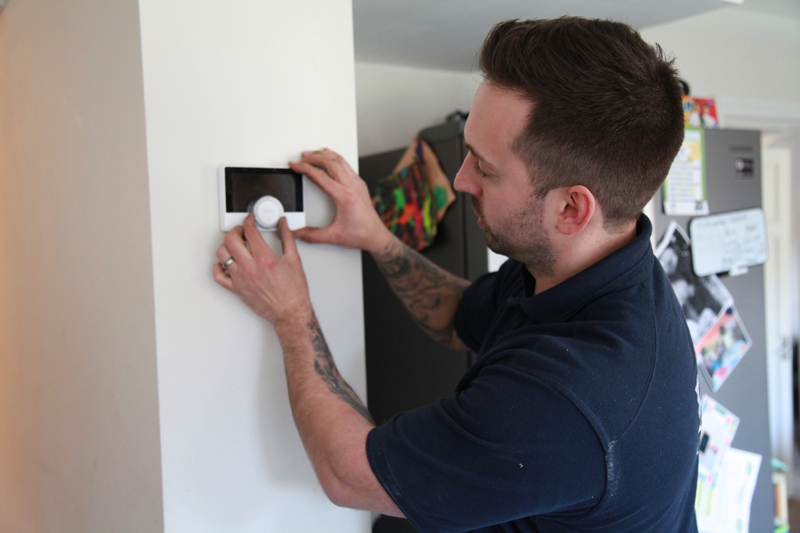
Introduced in April 2018, Boiler Plus brought in additional measures that must be met when a boiler is installed in an existing dwelling in England. A year on, Jeff House, Head of External Affairs at Baxi Heating, explores the impact of the legislation on the heating industry and what more can be done to ensure compliance.
Boiler Plus; it’s a name that has entrenched itself in the minds of those in the heating industry. Its introduction just over a year ago was designed to lower consumer energy bills, reduce harmful emissions and encourage energy efficiency. The standards introduced were pragmatic and relatively straightforward: any new gas boiler installed in homes in England must be a minimum of 92% efficient, they must include a time and temperature control, and, in the case of a combi, must be fitted with either a Flue Gas Heat Recovery (FGHR) device, weather compensation, load compensation or a smart thermostat with automation and optimisation.
While the legislation has been successful in encouraging the adoption of energy saving options, there is still work to be done and room for future development.
Smart definition
The definition of ‘smart control’ as included in the final regulation has caused some confusion in the marketplace. The final wording requires a “Smart thermostat with automation and optimisation”. The definition of these two control functions was somewhat streamlined from the preceding consultation response, and has left the legislation open for interpretation, with opposing claims of what complies and what doesn’t, continuing to a pose a challenge to the successful implementation. Similarly, the definition of Load Compensation functionality raised questions and varying interpretations from suppliers.
To counter some of the myths and misconceptions surrounding definitions, the Heating and Hotwater Industry Council (HHIC) produced the ‘Boiler Plus Additional Guidance’ guide for installers. This guide contains more detail and background from the Department for Business Energy and Industrial Strategy (BEIS) policy documents and offers installers advice on how to assess product functionality against requirements. Baxi Heating would advise anyone unsure of the Boiler Plus definitions and requirements to read the free-to-download HHIC guide.
The future
Whilst BEIS is required to carry out a first year review into Boiler Plus, as with any newly implemented policy, this does not necessarily mean that change is imminent. There are however opportunities for additional measures which merit debate. One of which is that system balancing should be a requirement of the standard. The large majority of practicing installers will already be balancing systems as a matter of best practice. The challenge when considering adding system balancing as a legislative requirement is regulating the practice; it would be difficult to prove in-situ compliance at a later date on issues such as this given that end users may alter valve positions or remove radiators during decoration after the event.
From analysis of available statistics not all installations in the first year would appear to be compliant with the current Boiler Plus legislation. For instance, the sales figures of the four required technology options for combi installations would not appear equal to the number of boilers sold. This may be in part owing to completeness of statistics from some parts of the industry, nevertheless questions have been raised as to whether Boiler Plus is being adhered to by all. To better monitor compliance, the industry must look to the digital world. By moving away from paper-based reporting and handwritten forms, we can ensure that there is a digital record of all works carried out.
We are already on the pathway towards a more online industry, with registrations of warranties already being completed on the internet. For example it could be suggested that Gas Safe registered installers register the Boiler Plus compliant option alongside the boiler there is the potential to more readily demonstrate industry compliance. While this is not fool proof, it would provide another means of monitoring compliance to ensure the continued reduction of harmful emissions and homeowner bills.
Education
More could be done to promote education around the options available to meet the Boiler Plus standards. For example, load and weather compensation devices have been standard practice for newbuild installers for some years, yet many heating engineers only carry out retrofit installations. This means that they may be unaware of how the technology works or how to install it. Training courses such as our free product training days can provide installers with the knowledge needed to understand and fit Boiler Plus compliant technologies, allowing them to build their confidence and share that information with their customers.
The introduction of Boiler Plus was intended to promote energy efficiency and lower homeowners’ energy bills – what we have seen over the last year however is some mixed messages surrounding compliance and evidence that not all within the industry are adhering to the legislation.
By further exploring the potential for online registration, we could hopefully move toward more transparency with regard to compliance in future. We should not expect to see Boiler Plus 2.0 anytime soon, but with renewed energy and focus we can build on a solid start and make Boiler Plus a resounding success.













